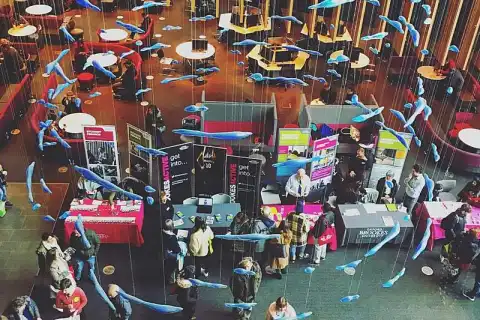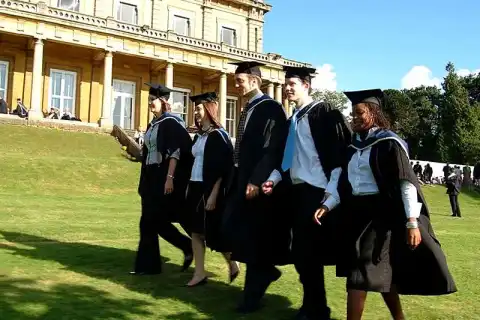Bachelor (Hons) - Anthropology
- 3 years
- Duration
- 16,750 GBP/year
- Price
- September
- Start
- May
- Deadline
- Bachelor
- Degree
- Campus
- Format
- Oxford / United Kingdom
- Location
- Oxford Brookes University
- School
Program description
Human communities are currently dealing with a great deal of uncertainty and upheaval, from international migration to vanishing nature. Additionally, to address these difficulties, our world requires individuals with creative abilities and viewpoints.
You will investigate what makes us human, what motivates our diversity, and how we interact with our surroundings when you study anthropology. Your studies will take you across subjects, civilizations, places, and species starting on the first day. While exploring various cultures, you'll learn about your own. You'll study about human societies' evolutionary roots. Your interests may surprise you.
Important topics disscused during this course are:
- social justice and inequality
- the origins of modern humans
- migration and multiculturalism
- gender identities and differences
- international development
- primate conservation
You’ll graduate with a strong awareness of social and environmental justice. And you’ll have sought-after employment skills and knowledge.
Program structure
Year 1
- Family, Kinship, and Society
- Becoming an Anthropologist
- Introduction to Biological Anthropology
- Deep History
- Introduction to Social Anthropology
- Primate Societies
Optional Modules
- Contemporary Societies: Structure and Change
- Introduction to Physical Geography
- Introduction to Japanese Society and Culture
Year 2
- Human Evolution
- Methods and Analysis in Biological Anthropology
- Social Anthropology Theory
- Research Methods in Social Anthropology
Optional Modules
- Anthropology in Action
- Understanding India: Society Culture and Economy
- Ritual and Society
- Work-based Learning
- European Societies
- Human Ecology
- Personhood, Gender and the Body in Contemporary Japan
- Primate Adaptation and Evolution
- Quaternary Environmental Change
Year 3
- Anthropology Dissertation (compulsory for single honours, optional for combined honours)
Optional Modules
- Anthropology Independent Study
- Development and Humanitarianism
- Anthropology Independent Study
- Cognitive Evolution
- Culture and Care
- Dawn of Civilisation
- Africa: Social and Economic Transformations
- Minorities and Marginality in Contemporary Japan
- Palaeopathology
- People and Other Animals
- Primate Conservation
- Subjectivities and Social Transformation
Price
- Tuition Fee - 16,750 GBP per year
Requirements for applicants
General Entry Requirements
- Acceptable passes in five subjects (exceptionally four subjects) at GCSE or GCE including:
- one 12-unit vocational A-level, or
- two A-levels or two 6-unit vocational A-levels, or
- one A-level or 6-unit vocational A-level plus two AS-levels, or
- two 3-unit vocational A-levels
- A National Certificate or Diploma at a good standard.
- The International Baccalaureate Diploma (minimum of 24 points) or the European Baccalaureate Diploma (minimum of 60%).
- Five subjects in SCE with two at Higher level or one at Advanced Higher level.
- Three subjects in Scottish Highers or two at Advanced Higher level.
- Any other qualifications considered by the Academic Board to be of equivalent standard.
- A recognised access course
English language requirements
- IELTS: 6.0 overall with 6.0 in reading and writing, 5.5 in listening and speaking
About the university

The history of Oxford Brookes University spans more than 150 years. We began as a modest School of Art in rented classrooms and have expanded into one of the UK's top modern universities with a reputation for distinction in teaching and research on the local, national, and worldwide levels.
Our primary goal is to provide a top-notch educational experience that helps each of our graduates to be competent, self-assured, and prosperous. The standard of instruction students receive is an integral component of this.
Oxford Brookes works with a wide range of partners both domestically and internationally. Our connections are essential to improving our instruction, research, and information sharing. Additionally, they provide our students a wealth of placement, internship, and employment options.
In cooperation with our Associate College Partners as well as directly, we offer a variety of higher education and degree apprenticeships (ACPs).





